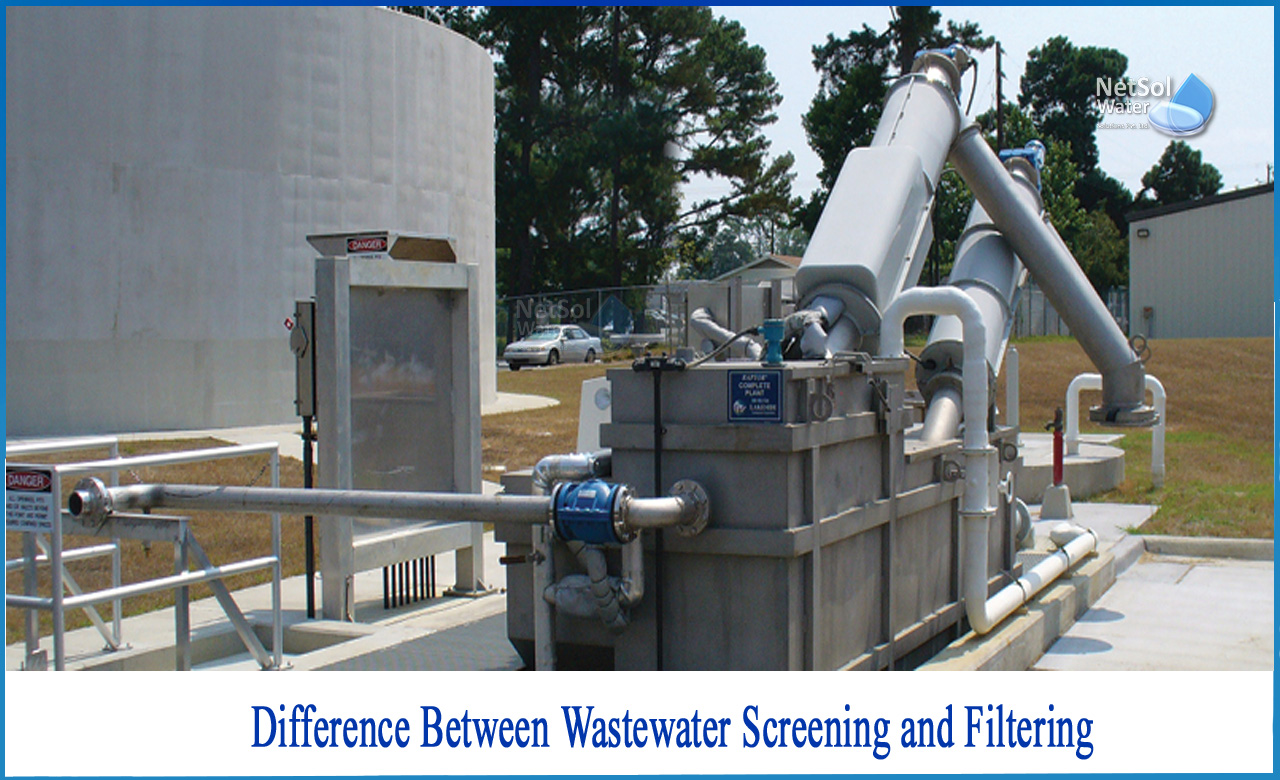What is the Difference between Wastewater Screening and Filtering?
What do you mean by wastewater screening?
At wastewater treatment plants, the first unit activity is wastewater screening (WWTPs). To minimize damage and clogging of downstream equipment’s, pipelines, and appurtenances, screening eliminates items such as rags, paper, plastics, and metals. Coarse screens, fine screens, communitors, and grinders are some of the numerous types of wastewater screens (which are typically used at a smaller treatment facility). A basic garbage rack can be used as a screen, or it can be as complicated as a mechanical bar system.
1: Heavy particles, rags, and rubbish are removed from wastewater by coarse screens, which generally have apertures of 6 mm (0.25 in) or larger.
2: Fine screens are widely used to remove particles that could create issues in downstream processes, particularly in systems without initial treatment. The apertures of fine screens typically range from 1.5 to 6 mm (0.06 to 0.25 in).
3: Grinding devices (which consist of revolving slotted cylinders) are another mechanical screen components that is inserted in the wastewater flow channel to grind and shred debris up to 6 to 19 mm (0.25 to 0.75 in) in size.
What do you mean by wastewater filtering?
Filtration of waste water is another phase in the water treatment process. To properly consume water for drinking, for example, harmful pollutants in wastewater must be lowered below Government standards.
A filtering technique is used to treat the water once it has been screened. The type of filtering system utilised varies by facility, however a trickling filter system (also known as the activated sludge process) is frequently used. In this technique, wastewater is poured into an area with about six feet of stones, essentially into a tank that is aerated to promote bacterial growth.
Bacteria clings to the surfaces of these stones, and the bacteria subsequently eat and break down the debris that travel through the area. Bacteria are in charge of decomposing organic stuff in the sludge that flows into the tank. After that, the water is subjected to still another round of treatment.
The water is delivered into tanks where it is exposed to chlorine (or ammonia), which can kill up to 99% of bacteria after it leaves the sedimentation tank in the secondary stage of the treatment process. This is, without a doubt, a crucial phase in the process.
Difference Between filtration and screening
S No. |
Filtration |
Screening |
|
1. |
The filtering process is the second phase which removes any remaining pollutants. |
Screening is the first phase in the procedure, and it removes 'larger' organic debris. |
|
2. |
A filtering technique is used to treat the water once it has been screened. |
At wastewater treatment plants, the first unit activity is wastewater screening. |
|
3. |
Depending on the user’s needs, water filters can be stationary or portable. |
Depending on the user’s needs, water screeners can be manual or mechanical. |
Conclusion
The screening and filtration of wastewater are critical for producing and preserving water that is safe for human consumption and usage. This process employs a variety of technologies, but you can understand that a high level of efficiency and dependability is required to ensure that the process goes smoothly.
Netsol Water is a significant water and wastewater treatment firm in India, offering WTP, WWTP, STP, and ETP manufacture, among other services. We have made it our mission to save the planet. The company creates equipment’s and is committed to providing practical solution that help businesses flourish. We are committed to providing our valued customers with hands-on service, expert counselling, and training.



